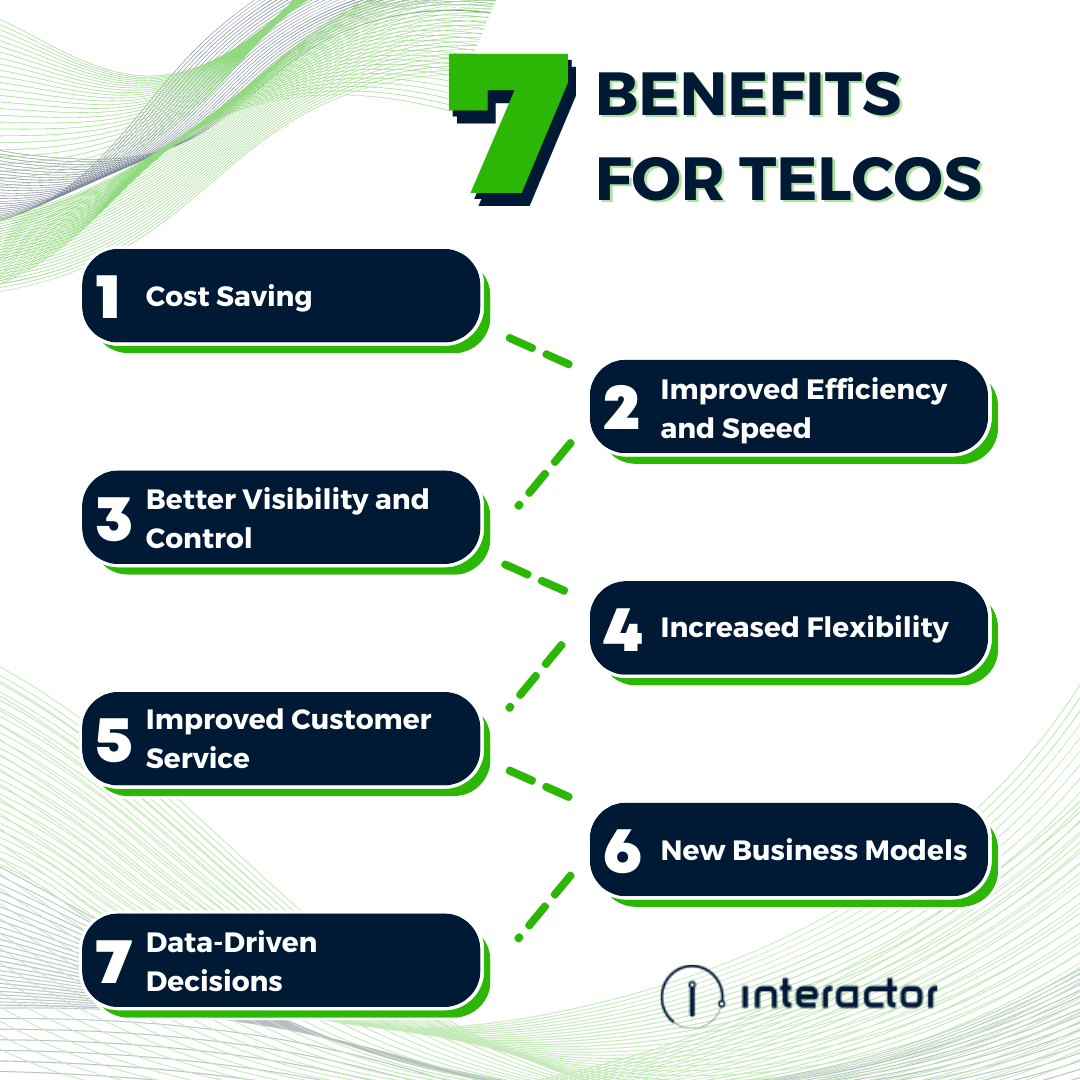How Are Telcos Using APIs to Manage Large Infrastructures?
During the past eight years since we started working with telecommunication companies, much has changed on the technology side and the way APIs utilize managing large infrastructure.
Traditionally, large teams developed, deployed, and maintained complex telco networks. 5G was introduced into the market, and networks grew with more capabilities to comply with 5G requirements. These changes made telcos quickly realize that without a robust API strategy, the cost surpassed the business generated from the infrastructure.
Interactor has been helping telcos by providing a simple and standardized way for different systems and applications to communicate with one another. As a result, APIs make it possible for telcos to streamline their operations, automate tasks, and improve the overall efficiency of their networks.
10 Ways APIs Show Up in the Telecommunications Industry:
Below are some of the most common use cases for APIs in the telecommunications industry:
- Data Collection: Operation and business support services must collect data from various sources. APIs quickly integrate with data sources and network services to collect data.
- Network Management: APIs can automate and streamline network management tasks, such as creating new services, monitoring network performance, and troubleshooting issues.
- Billing and Payment: APIs can integrate with billing and payment systems, allowing telcos to automate the related processes.
- Customer Relationship Management (CRM): APIs can integrate customer relationship management systems, giving telcos a unified view of their customers/users and making it easier to manage all interactions.
- IoT: APIs connect Internet of Things (IoT) devices to the network and enable communication between them and other systems.
- Business Intelligence: APIs can extract data from various systems and applications, providing telcos with valuable insights into their operations and helping them make data-driven decisions.
- Third-Party Integration: Telcos use APIs to offer their services to third-party providers and partners, enabling collaboration and new business models.
- Inventory Management: Telcos can use APIs to access and manage the inventory of network elements and devices. This allows them to automate tasks such as provisioning and monitoring network resources.
- Service Management: Telcos can use APIs to manage and orchestrate various network services. This allows them to automate creating and managing services across multiple network domains.
- Database Abstraction: Telcos have many databases that need to be used by many applications. API layer allows the decoupling of the database from the applications, providing flexibility and scalability.

Benefits for Telcos:
APIs are no longer considered an investment as the benefits are realized quickly after implementation. Below are some of the benefits gained by telcos by leveraging APIs to manage their infrastructure:
- Cost Saving: The number of engineering resources needed for the different integration methods is high. By creating standardized APIs, integration cost reduces dramatically.
- Improved Efficiency and Speed: APIs allow different systems and applications to communicate with one another, automating tasks and streamlining operations. This can result in a significant increase in development efficiency for telcos.
- Better Visibility and Control: APIs can provide telcos with greater visibility and control over their infrastructure, allowing them to quickly and effectively identify and resolve issues.
- Increased Flexibility: APIs enable telcos to integrate new systems and applications quickly and easily into their infrastructure, increasing the flexibility of their operations and allowing them to adapt more rapidly to changing business needs.
- Improved Customer Service: APIs can integrate customer relationship management systems, giving telcos a unified view of their customers and making it easier to manage customer interactions. This can lead to improved customer service and increased customer loyalty.
- New Business Models: APIs can enable telcos to offer their services to third-party providers and partners to facilitate collaboration and new business models.
- Data-Driven Decisions: APIs can extract data from various systems and applications, providing telcos with valuable insights into their operations and helping them make data-driven decisions to improve their bottom line.
APIs are playing an increasingly important role in the telecommunications industry.
Powerful tools such as API AutoFlow provide a simple and standardized way for different systems and applications to communicate with one another, making it possible for telcos to streamline their operations, automate tasks, and improve the overall efficiency of their networks.
Have some questions?
Want to learn more about how API AutoFlow can help your telecommunications organization? Reach out to schedule a call.

April 5, 2023

Comments